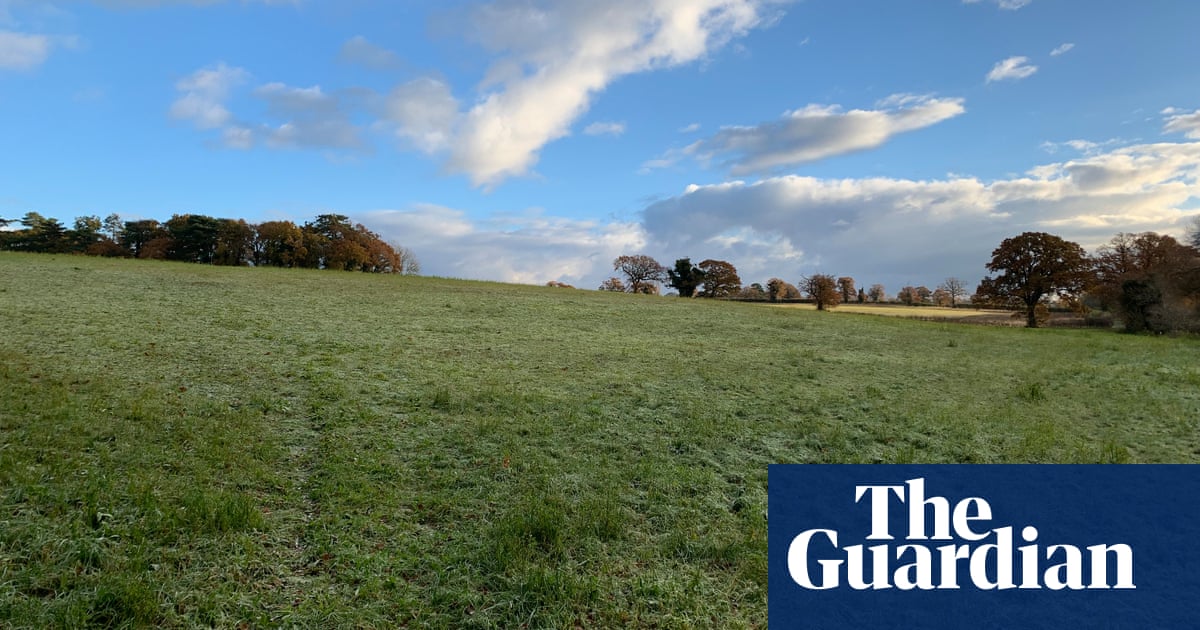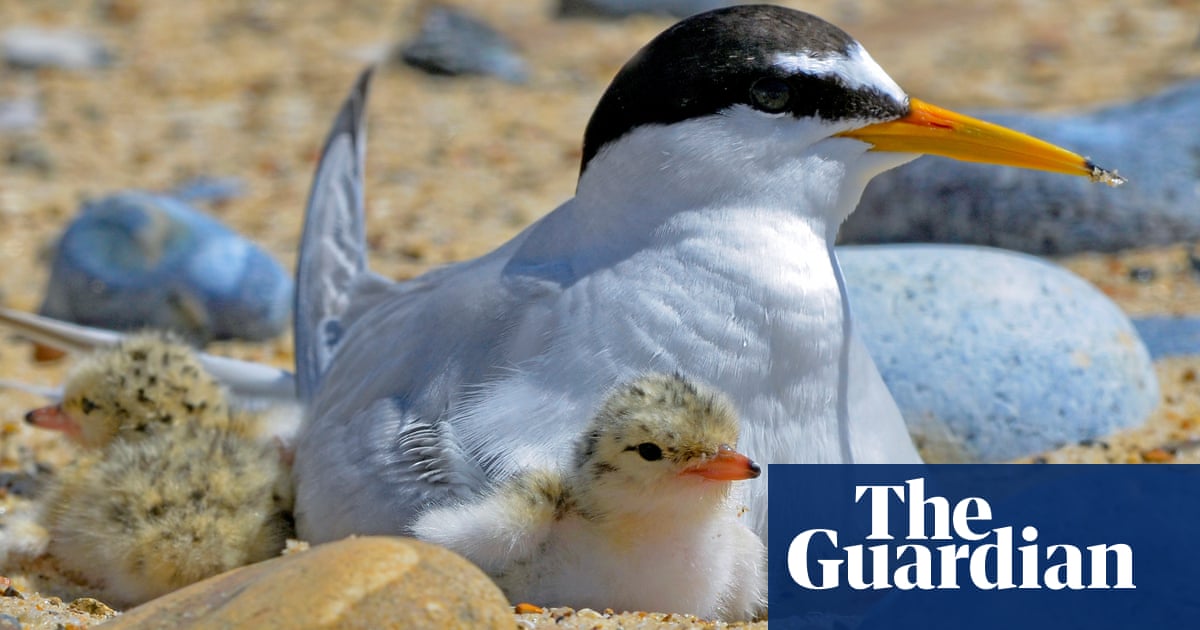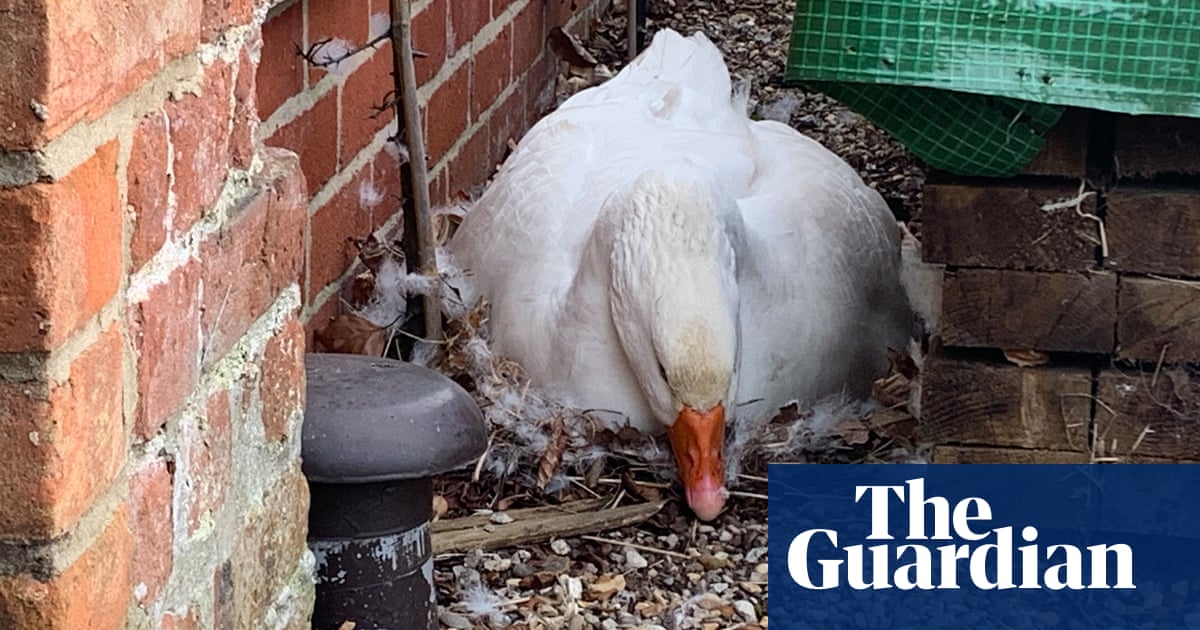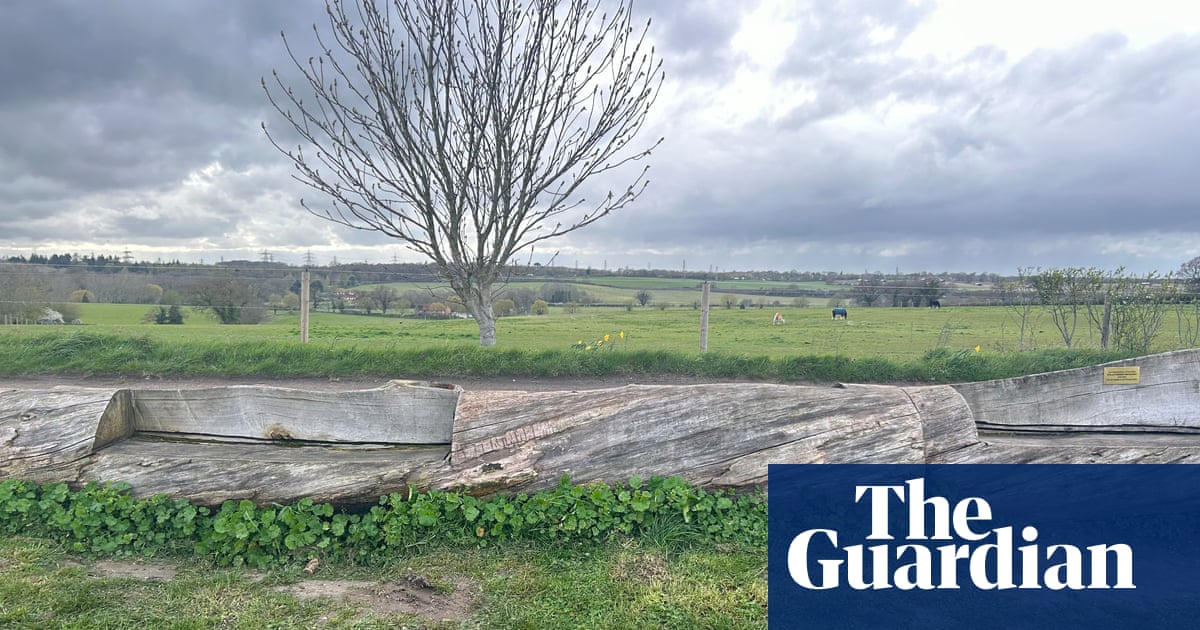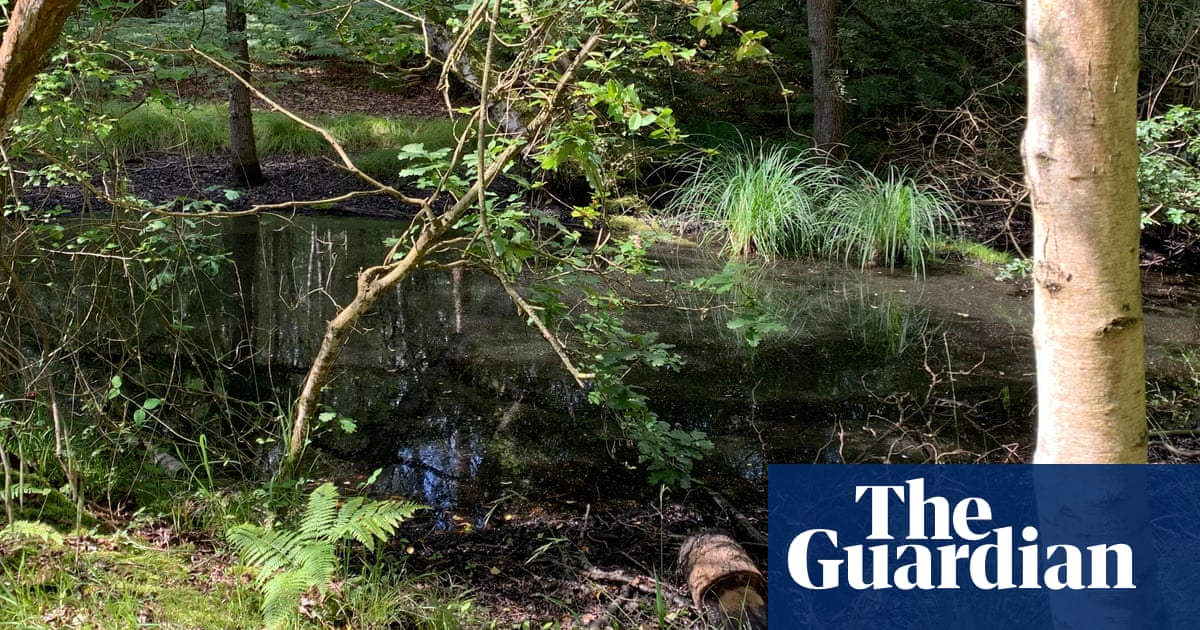
My son leads the way, setting a fast pace, while my daughter wants to stop and look at everything – a tiny froglet crossing our path, a peacock butterfly that settles on her hand. Our first pingo was quickly followed by our second, third and fourth, as we pushed further into an unknown landscape.
In the ice age, as glaciers retreated, areas of water remained frozen underground, hard lens-like discs of ice shrouded in soil. When it thawed, the soil sank down, leaving shallow hollows that then filled with water to become a rare type of pond. Known as kettle ponds or pingos, Norfolk’s Breckland is pocked with hundreds of them, forming a swampy, nature-rich wetland habitat that can be explored on the Great Eastern Pingo Trail.
The word pingo is Inuit for a hill that has an ice core. Around the UK, most pingos have been lost to agriculture and land drainage. Bounded by arable land and forestry, the route immerses us in lush green as we part ferns to continue our path along a disused railway and a Roman road.
This is heaven for dragonflies and damselflies, and the air is busy with so many species and colours, from electric blue, emerald green and rusty red to the heavy brown hawkers. Like pingos, dragonflies have a long history. About the time coal was formed, 300m years ago, their evolutionary ancestors were on the wing in swampy habitats just like this.
Thompson Water opens up before us, part of this rich mosaic of land and water. A team of volunteers works relentlessly to eradicate the invasive plant Crassula helmsii from the ponds here. It’s a major threat for UK wetlands because it grows vigorously, forming dense mats that reduce oxygen levels and kill native flora. It needs to be painstakingly removed by hand.
In recent years, ghost pingos, those that were lost to the plough, are being restored. It’s alchemy. By uncovering the original sediment at the base of the pool, the hidden seed bank is reactivated, returning the ancient plants to life.
We reach the end of the trail feeling as if we have travelled back in time to a lost, nature-filled past.






